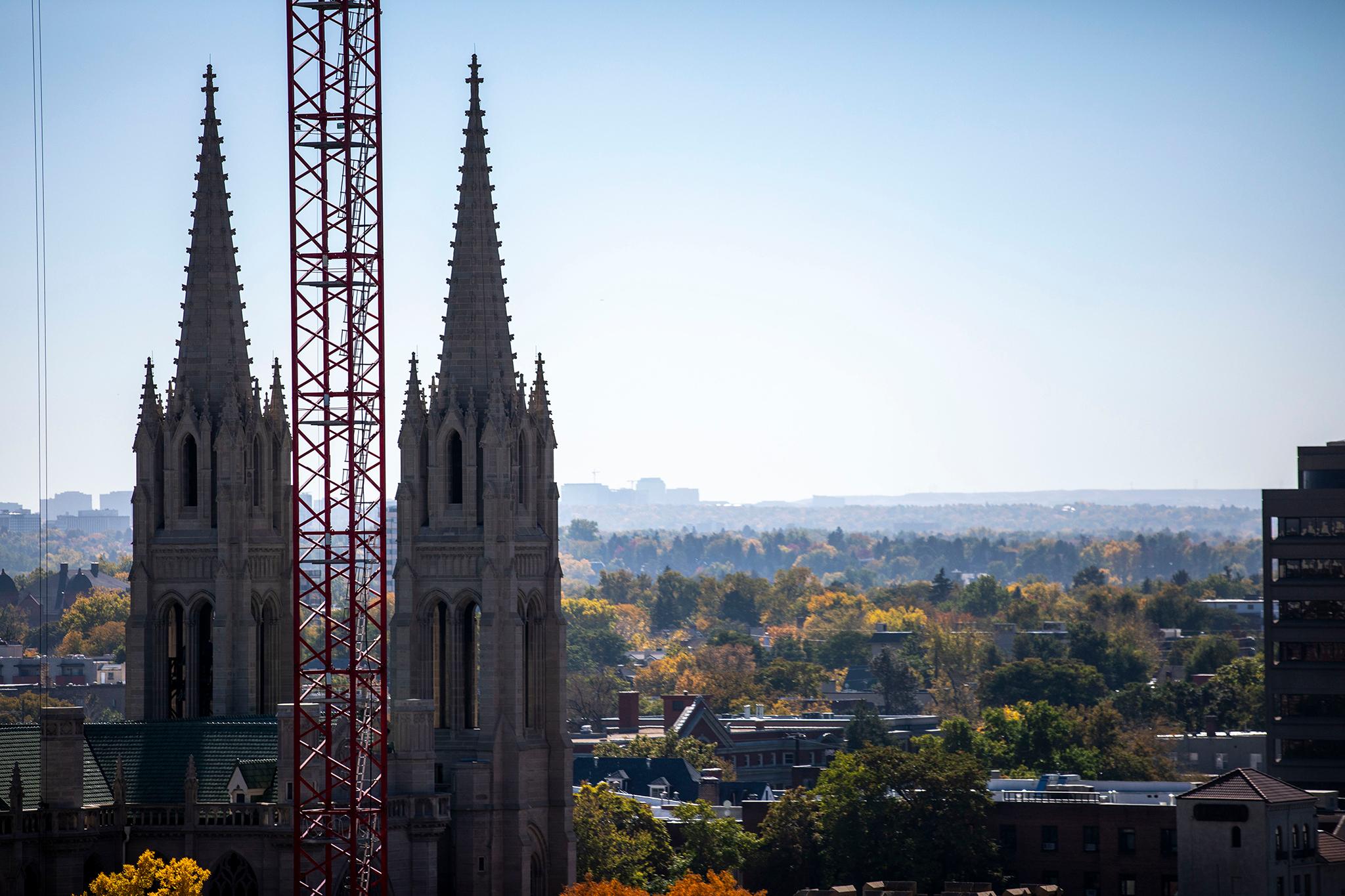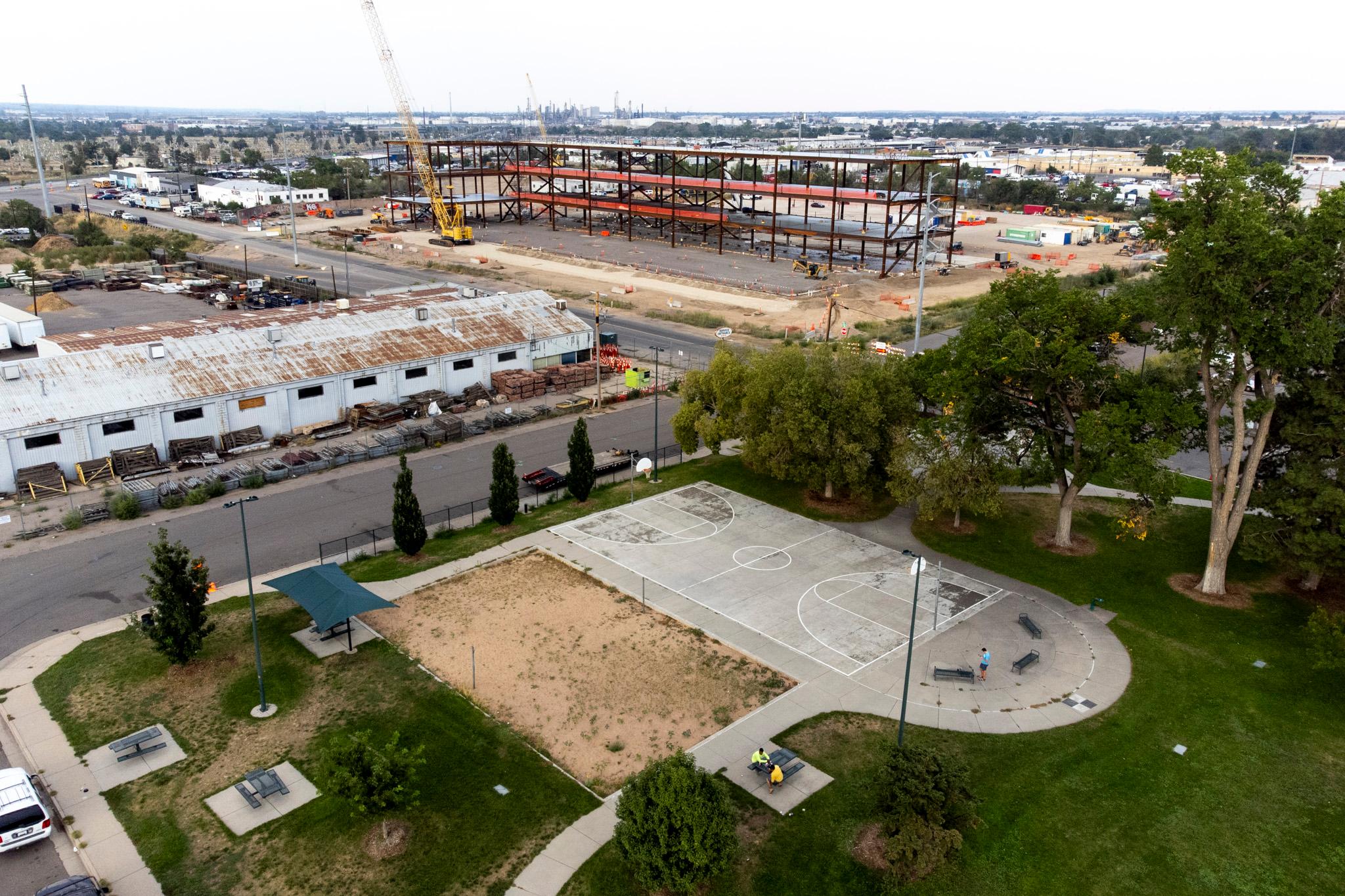The on-again, off-again funding freeze of federal grants in the Denver metro area has affected hospitals, federal workers and until recently, efforts to improve the air you breathe.
In July, Colorado’s congressional delegation celebrated a $199 million grant from the U.S. Environmental Protection Agency to the Denver Regional Council of Governments (DRCOG), a consortium of municipalities spanning from Boulder to Georgetown.
The grant was meant to improve regional air quality by incentivizing building owners to switch from natural gas to electricity for heating and cooling.
“For Colorado to lead the country in a clean energy transition, we must reduce pollution from the largest sources of greenhouse gases – and in the Denver metro area, that means decarbonizing our homes and businesses,” Sen. Michael Bennet wrote in a statement at the time.
But like many Denver projects, DRCOG’s grant was caught up in President Donald Trump’s funding freeze. The Inflation Reduction Act, a landmark Biden-era climate law, funded the grant. Through executive orders and federal budget office memos, the Trump administration has repeatedly tried to revoke funding from the law, targeting programs it describes as part of the “Green New Deal.”
Late in January, a government payment portal used by DRCOG to receive payments from the EPA began displaying an error code, locking them out of their account. Their EPA grant manager also stopped responding to their messages, according to the group. The combination left them unable to get paid and unsure what was happening with their program.
In a statement from last Friday, a Denver EPA spokesperson said that all accounts funded through the IRA were now available, but indicated that agency personnel were still reviewing certain grants.
“We applied for this grant funding in good faith,” said Chris Selk, a DRCOG communications manager. “We won it fair and square. I’d be lying if I said it wasn't disheartening that we feel like other folks aren't holding up their end of the bargain.”
Funding is back, but uncertainty remains
The federal government froze DRCOG’s funding portal just as the group was putting out a dozen work proposals and hiring staff and contractors. It was ready to submit some $120,000 in reimbursements to the EPA.
The freeze threatened momentum for the grant, which aims to create a unified strategy for how DRCOG’s 58 member governments work together to reduce building emissions.
“There’s a patchwork of policy in this region,” said Robert Spotts, a program manager at the group. “The goal of this program is to have a transformation of the market so buildings become more efficient, and improve air quality and health in this region.”
They hope to spur that transformation by training nearly 5,000 workers to electrify building infrastructure; conduct a public awareness campaign that will reach millions of Coloradans; and offer incentives for buildings to install technology like heat pumps and electric stoves.
That’s the hope, anyway. The group was shut out of their portal for around three weeks until Wednesday morning, when they “struck gold” and could log on, according to Selk. Even so, the uncertainty and seemingly arbitrary nature of having funding turned on and off is clouding their future plans.
“It’s causing us pause on hiring the rest of the staff that we have in our work plan, because we want to be cautious and not put people’s livelihoods on the line,” Spotts said.
Still, the group is moving forward, hoping this was more of a speed bump than a red light, and plans to complete their work per their signed contract.
Over the past few years, Denver has had some of the worst air quality in the world on certain days. The Front Range has also been in violation of federal air quality standards for years. In the summer, state health officials blast out air quality alerts in the Denver metro area, urging residents to avoid breathing outside air.
“A reduction in greenhouse gases also means better health for everyone who breathes the air in the Denver region, including kids,” Selk said. “Those are the kinds of things that tend not to be highlighted in these sweeping executive orders that we're seeing.”
“And it really is a shame.”














